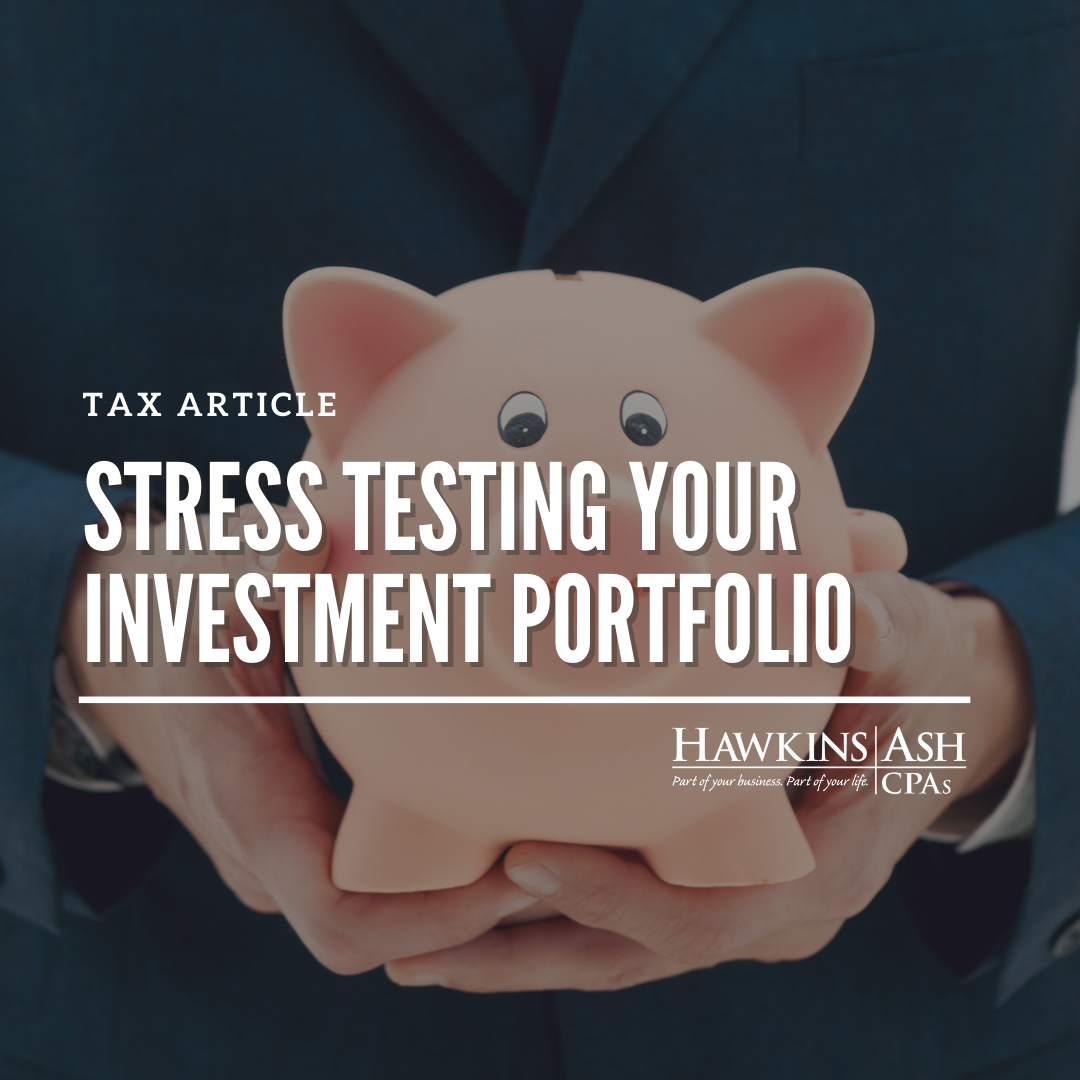Many banks conduct regular “stress” tests to predict the impact of adverse external events on their earnings, capital and loan portfolios. Banks use the results to shore up any revealed weaknesses. Investors should periodically perform similar stress tests on their investment portfolios.
Stress testing is the ultimate “what if” analysis. It uses modeling techniques to predict the impact of an economic downturn, financial crisis or any number of other “worst case” scenarios on your wealth. By analyzing this information, you can identify vulnerabilities in your financial plan and make changes to enhance its probability of success.
There’s virtually no limit to the scenarios you can test. Common examples include extreme market volatility, a severe or prolonged bear market, increasing inflation, and rising interest rates. Think about current events, too. How would, say, a fuel crisis is driven by a massive cyberattack affect your portfolio?
One useful exercise is to take the contents of your actual portfolio and calculate the outcome had you owned the identical investments on the eve of a historical financial crisis. Such testing can reveal potential weaknesses in your portfolio and help you pinpoint strategies to mitigate them.
For example, you might change the assumptions in your scenario analysis to see how your portfolio would respond if it were more heavily allocated to bonds rather than equities, or if it were more diversified by region, sector or other factors. While there are no guarantees, this type of stress testing can help you identify asset allocations that increase your probability of weathering various storms and ultimately meeting your financial goals.
Stress testing tends to focus on negative scenarios, but don’t ignore the positive. Incorporating positive market developments in your scenario analysis — such as the resurgence of a struggling sector or improved stability in a volatile market — can help you ensure that you’re invested in the right vehicles to maximize upside potential.
Of course, stress testing can tell investors only so much. During the recent pandemic, many stocks soared despite economic conditions that would suggest they’d be under greater downward pressure. So, talk with your financial advisors about the potential benefits — and limitations — of stress testing. The goal is to develop a resilient financial plan that’s customized to your specific circumstances and goals.





